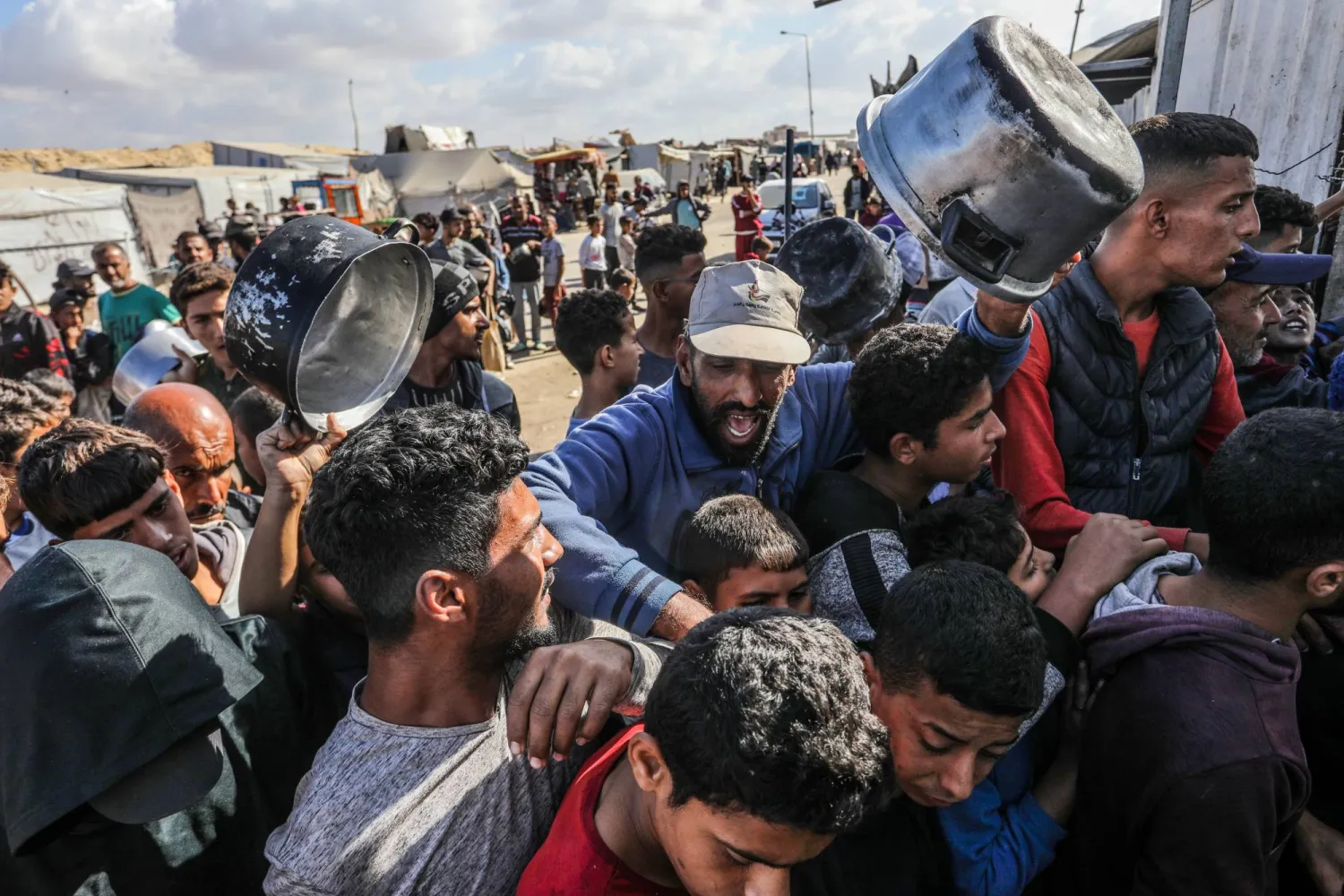A shortage in flour and the closure of a main bakery in central Gaza have exacerbated an already dire humanitarian situation, as Palestinian families struggle to obtain enough food.
A crowd of people waited dejectedly in the cold outside the shuttered Zadna Bakery in Deir al-Balah on Monday.
Among them was Umm Shadi, a displaced woman from Gaza City, who told The Associated Press that there was no bread left due to the lack of flour — a bag of which costs as much as 400 shekels ($107) in the market, she said, if any can be found.
“Who can buy a bag of flour for 400 shekels?” she asked.
Nora Muhanna, another woman displaced from Gaza City, said she was leaving empty-handed after waiting five or six hours for a bag of bread for her kids.
“From the beginning, there are no goods, and even if they are available, there is no money,” she said.
Almost all of Gaza's roughly 2.3 million people now rely on international aid for survival, and doctors and aid groups say malnutrition is rampant. Food security experts say famine may already be underway in hard-hit north Gaza. Aid groups accuse the Israeli military of hindering and even blocking shipments in Gaza.
Meanwhile, dozens lined up in Deir al-Balah to get their share of lentil soup and some bread at a makeshift charity kitchen.
Refat Abed, a displaced man from Gaza City, no longer knows how he can afford food.
“Where can I get money?” he asked. “Do I beg? If it were not for God and charity, my children and I would go hungry".
Food Shortages Bring Hunger Pains to Displaced Families in Central Gaza

16 November 2024, Palestinian Territories, Khan Younis: Palestinians line up to receive a meal from the World Food Program and The United Nations Relief and Works Agency for Palestine Refugees in the Near East (UNRWA) in Khan Younis. Photo: Abed Rahim Khatib/dpa

Food Shortages Bring Hunger Pains to Displaced Families in Central Gaza

16 November 2024, Palestinian Territories, Khan Younis: Palestinians line up to receive a meal from the World Food Program and The United Nations Relief and Works Agency for Palestine Refugees in the Near East (UNRWA) in Khan Younis. Photo: Abed Rahim Khatib/dpa
لم تشترك بعد
انشئ حساباً خاصاً بك لتحصل على أخبار مخصصة لك ولتتمتع بخاصية حفظ المقالات وتتلقى نشراتنا البريدية المتنوعة







